Magnus Brunner, the EU’s Home Affairs and Migration Commissioner, told the news magazine Politico that he believes further negotiation with both forces in Libya is needed in order to help manage migration towards Europe.
While attending a migration summit in Germany recently alongside interior ministers from Germany, France, Poland, Denmark, Austria and the Czech Republic, Magnus Brunner, the EU’s Home Affairs and Migration Commissioner, told the news magazine Politico that he believes the European Union must remain ready to negotiate with Field Marshal Khalifa Haftar in Libya to better manage migration towards Europe.
Libya is essentially controlled by two rival forces. The UN-backed government is based mostly in the capital Tripoli and the western part of the country, and forces and militias controlled by Field Marshall Khalifa Haftar in the east. However, neither side has blanket control of their territories and many rival militias and factions have sprung up in the unstable military, political and economic situation that followed in the wake of the power vacuum left by the downfall of former Libyan dictator Muammar Gaddafi in 2001.
Earlier in July, Brunner’s visit to Libya, alongside ministers and officials from Italy, Greece and Malta, during which they intended to meet delegations from both ruling factions, ended when the European team was refused entry to Benghazi, part of Haftar’s eastern stronghold.
Read AlsoEU delegation forced to leave eastern Libya
'Russia is increasing its influence in Libya'
Despite this diplomatic snub, on Friday (July 18), during an interview with Politico, Brunner reportedly said that he believed "Russia is increasing its influence in Libya." This, Brunner said, should be a "concern" to Europe and "that’s why we must also engage with Libya."
Haftar visited Moscow and the Kremlin in May this year, meeting with Russian President Vladimir Putin. In the English-language Arab Weekly, it was reported at the time that Putin had met Haftar "to project its growing influence in Libya and its ambitions in the rest of Africa."
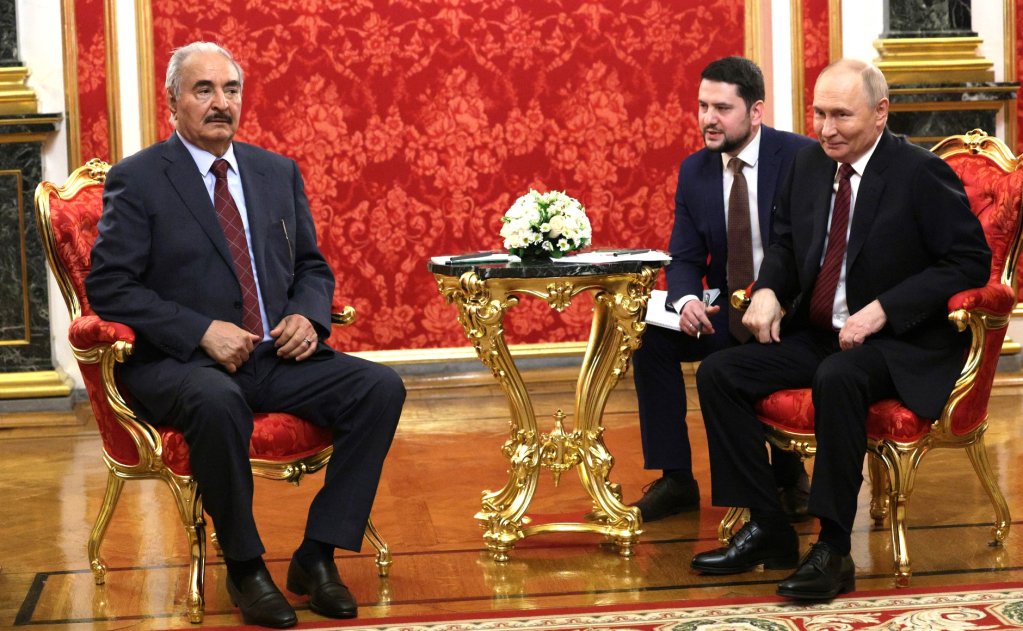
The Russian President’s office merely confirmed the meeting, released photos, and said the subject of the talks was "foreign policy."
On its Facebook site, the Libyan National Army (LNA), which Haftar commands, commented that Haftar had also talked to Russian Defense Minister Andrei Belousov to "discuss the latest regional developments, as well as ways to enhance military cooperation and coordinate efforts in a number of issues of common interest," reported the Arab Weekly.
Contacts between the two sides have been increasing over the last few years, reported the Arab Weekly. Russia’s deputy defense minister Yunus-Bek Yevkurov has "often visited Benghazi to meet Haftar," reported the newspaper.
Read AlsoEU Commissioner visits Libya in search of stronger migration controls
Fear of Russia weaponizing migrants across the Mediterranean
Reports suggest that since the fall of former Syrian leader Bashar al-Assad, Russia began to transfer some of its military assets to eastern Libya. Italy’s Defense Minister Guido Crosetto has already flagged concerns about this potential, saying that if Russia repositions in Libya, it would put hostile naval capabilities "two steps away" from Italian maritime territory, reported the Arab Weekly.
In the interview with Politico, Brunner claimed that Russia might be hoping to weaponize migrants on the Mediterranean route, just as European powers have accused Russia and its allies of doing on the Belarus route. "There is certainly a danger that Russia … [will] use migrants and the migration issue as a whole as a weapon against Europe. This weaponization is taking place, and of course, we also fear that Russia intends to do the same with Libya," Brunner reportedly said.
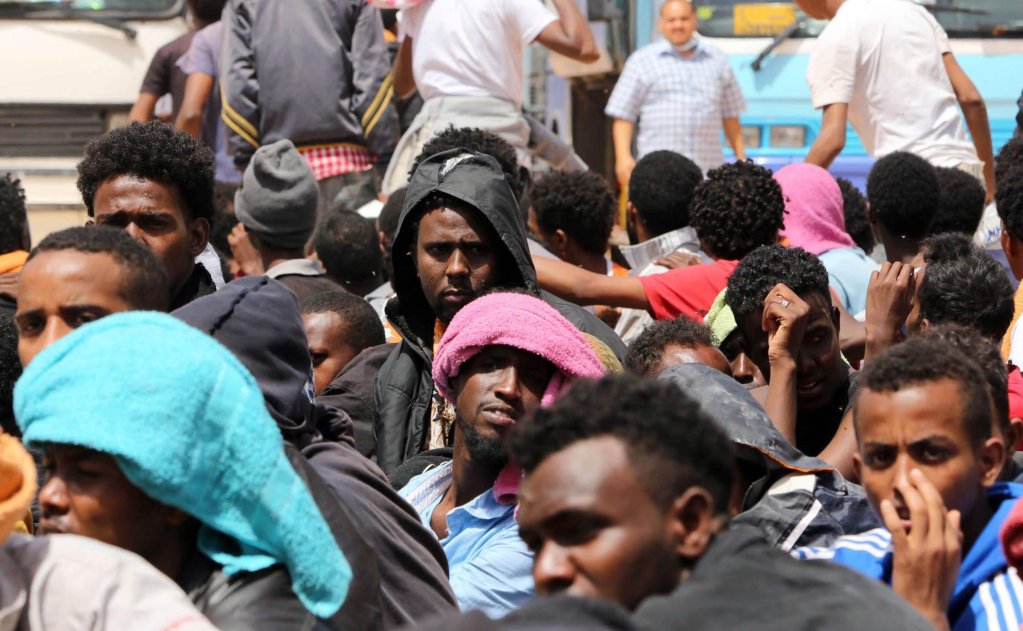
According to Politico, part of the reason behind Brunner and the team’s rejection from Libya was that they had refused to be photographed with Haftar’s ministers, reportedly because they were fearful of being perceived as legitimizing an administration most of the world does not recognize. Politico says it came to this understanding "based on conversations with officials."
Read AlsoEU urges Libya to combat Mediterranean migrant sea crossings
EU: 'Prepared to continue talks at any time'
Prior to the Brunner meeting, Italy’s leader Giorgia Meloni was photographed visiting and talking to Haftar and his ministers in both 2023 and 2024. Her visits to the eastern and western parts of Libya at the time were communicated to have been a success, resulting in the strengthening of bilateral agreements between Italy and Libya, and by extension, the EU and Libya too.
Brunner reportedly told Politico that when his team arrived in Benghazi earlier in July, "we didn’t know who the people sitting opposite us were. It wasn’t entirely clear in terms of the process. And that’s why, in the end, the talks didn’t take place, But we are of course prepared to continue these talks at any time. In my view, this is urgently necessary."
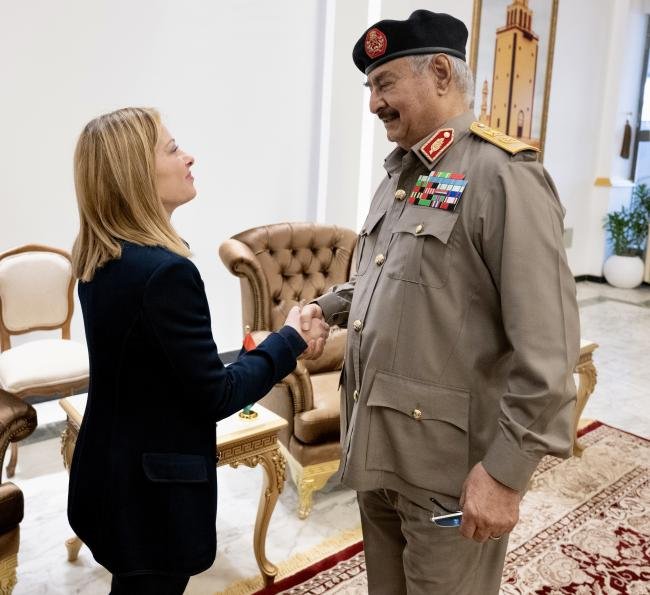
The Commissioner said that "channels of communication on a technical level" continue and "work very well."
Libya as a strategic partner has become important once again as this year, the greatest number of arrivals in Europe via the Mediterranean route are coming from that country. Many of them are reportedly setting off from ports in the eastern part of the country.
Read AlsoRussia's role in trafficking, smuggling from Libya to EU
Increase in arrivals from Libya
Since the beginning of the year, according to the latest data (updated on July 20) from the UN refugee agency UNHCR, a total of 24,045 migrants arrived in Greece. More than 10,000 of these (10,219) arrived on Crete. Most of the arrivals on Crete cross from ports in eastern Libya.
The increase in arrivals on that route has prompted Greece to declare a state of emergency and also seek to place naval ships south of Crete in an effort to deter crossings from Libya.
The government also suspended the processing of asylum claims from those arriving from North Africa. As of Monday (July 21) this week, it has also begun detaining arrivals.
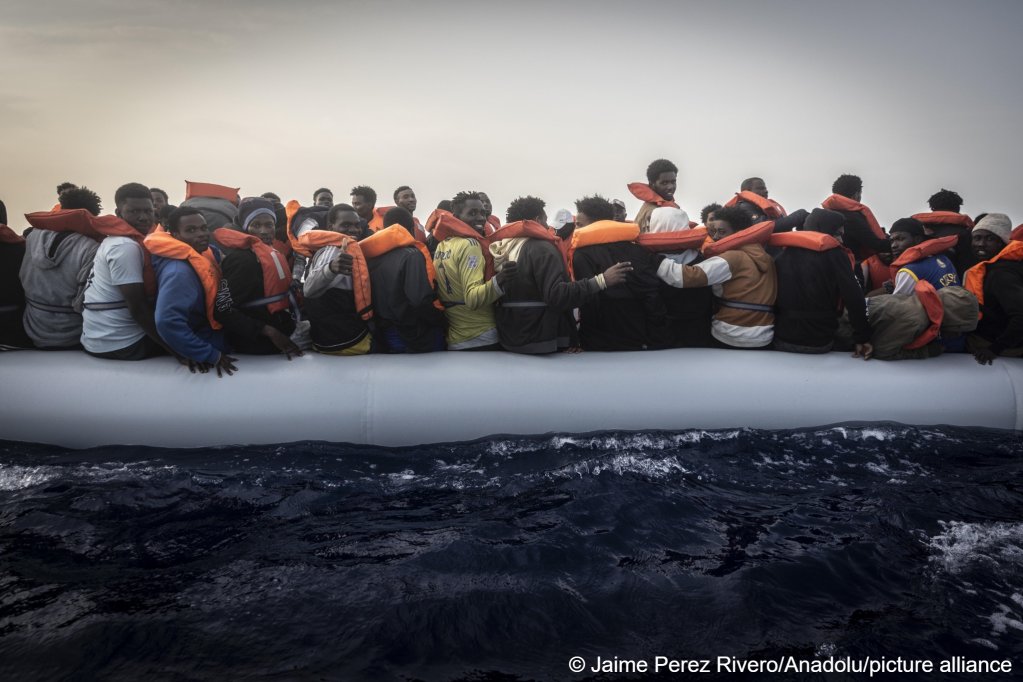
Brunner reportedly told Politico that he believed an attempt by Putin to seek influence in Libya left Europe with very little choice but to hold talks with Haftar.
Today, Tuesday, July 22, European Interior Ministers and Brunner are once again meeting, this time in the Danish capital, Copenhagen. Among the topics on the agenda is how to treat Libya, reports Politico.
Read AlsoDo Europe's restrictive migration policies really work? And at what cost?
Migrants in Libya
In its latest Displacement Tracking Index (DTM) the UN Migration agency IOM identified the presence of around 867,055 migrants in Libya in March and April this year. Around 53 percent of them reside in the west of the country, 35 percent in the east, and about 12 percent in the south. About a third of those present are thought to be Sudanese nationals.
The number of migrants now present in Libya is worrying to the EU. The central Mediterranean route is already the busiest this year according to Frontex figures, among a general decline of arrivals to Europe.
To combat this, the EU has been providing funding to support migration management in Libya for over a decade now. Billions of euros have been sent to the country to help with training and infrastructure in the country and help the Libyan coast guard prevent departures. However, much of that money goes to the western part of the country.
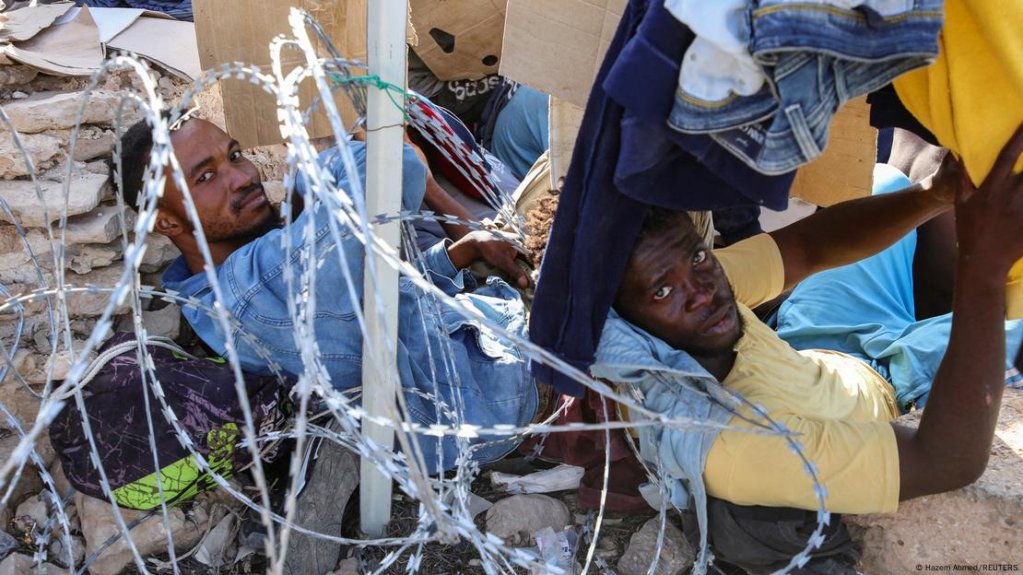
The IOM’s latest maritime update, covering the period from July 13 to 19, suggests that all migrant interceptions by the Libyan coast guard took place in the western part of the country. During that week, 305 migrants were intercepted and returned to Libya, bringing the total for the year to 12,643. On arrival, many migrants who eventually do make it across the Mediterranean report being detained and sometimes sold or handed from militia to militia before being extorted and, if successful, put on a boat to try their luck once more.
The EU money provided has been heavily criticized by human rights organizations and migrant rights advocates who underline that crimes against humanity are committed on a regular basis in the country. The United Nations issued a damning report in 2023 in which it said there was "overwhelming" evidence of systematic torture and sexual slavery.
Read Also'Libyans, armed and hooded, picked us up in the desert' – testimony of a Guinean in Tunisia
